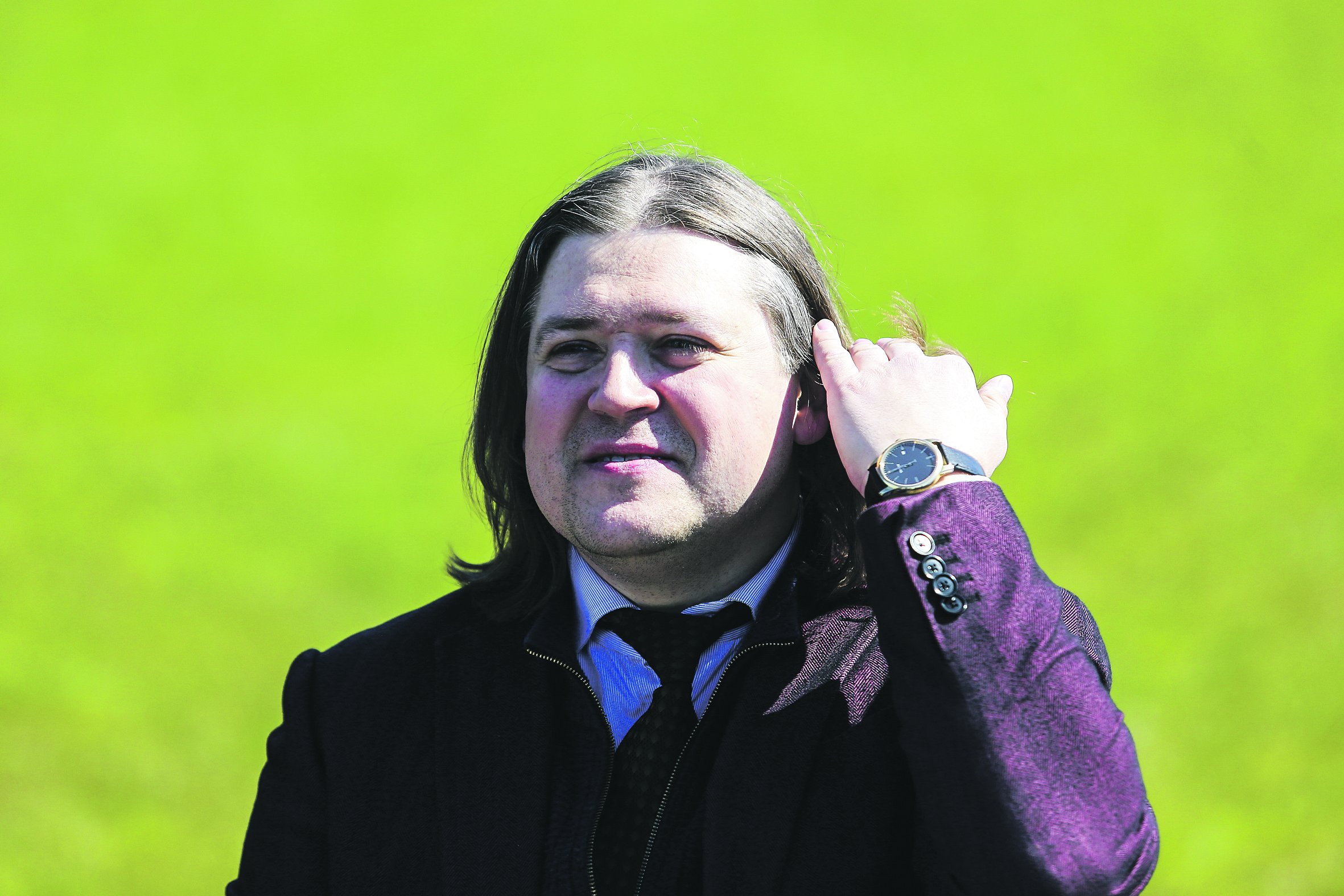To work with TELK: An opportunity or barrier for people with disabilities

Discrimination, prejudice, system gaps, lack of functionality – so it seems, described in four words, the process of searching for work by people with disabilities.
Every 124 per 1000 people in Bulgaria are disabled. These are a total of 654 547 people across the country. About 97% of them are over 16 years old, according to data from the National Statistical Institute of the population census in 2021. This number applies only to people who have established limited working capacity by territorial expert medical committees (TELC).
We suffer from the syndrome of the learned helplessness: Prof. Vladimir Radulov responds to Max Frisch
Why TELK is a problem

« We all know or have heard of TELK – this outdated system that produces disabled people. Hence the employer does not look at the person, but whether there is a committee decision. People with disabilities are hired, and such a » status « is given by the existence of a TELC decision. The organization has been working to change state policy in the field of disabilities for thirty years.
While TELK’s decision aims to support the lives of people with disabilities, it automatically leads to their perception by employers as disabled. Some are worried about hiring people who have 100% contraindications for all kinds of work because they can be sanctioned if an incident at work occurs, Nikolov said.
| As another disadvantage for employers, it also defines the more difficult release of people with disabilities. This neglects the important factor in the search for workers, taking into account the TELC’s decision, not whether or not the person can do the job. |
« At the age of 16, I broke my door and they gave me a pension. This should not be so. When a person receives any disability or is born with a disability, he or she must receive the corresponding supplement or means of offsetting the deficit in order to deal with the environment.
Another problem is the prejudice that people with disabilities face in the workplace. For this reason, some of them prefer to hide TELK’s decision from their employers. « They worry that if they show it, their attitude will be different, » the expert said.
Missing the whole picture
As of 2021, the country employs 116 864 people with disabilities between the ages of 16 and 64, according to NSI data. The highest is employment (50%) In people with reduced performance up to 50%, and the lowest is the share (14.8%) in the group with over 90% disability. Statistical data confirm that the more difficulties with the environment have people, the less likely it is to be economically active.
The average monthly number of registered unemployed with permanent disabilities last year is 10 708 peopleS These are the people who are actively looking for a job. 8364 people with disabilities (5% of all newly appointed people in the country) started working in the same year with the help of the Employment Agency, the Ministry of Labor and Social Policy told Dnevnik.
| The National Employment and Training Program has hired 1759 other people with disabilities, and under the Employment Promotion Act – 400 people. |
In the country, 169 social enterprises operating 444 people with disabilities operate, according to the ministry. The other 199 specialized enterprises and cooperatives work a total of 1974 people, half of whom have permanent disabilities (987 people). They are mainly hired in the sewing industry and bookbinding services.
According to Nikolov, however, statistics in the country are incorrectly kept. « There is no understanding in Bulgaria that only due to trauma, illness and/or other thing a person has a disability that leads to a problem with the environment. For example, a person with diabetes is chronically ill and I have to take medication, but becomes a disabled person only when his illness worsens or remains without a limb, » he explained.
Barriers in the search for a job
The lack of quality and affordable education is one of the main problems in seeking a job for people with disabilities, Nikolov explained. They are inferior to people without disabilities, NSI data show. By 2021, 327 per 1000 children with disabilities had never attended school. Similar is the case in people over 16 – they are 349 per 1000 people. At the same time, only 81 in 1000 of them have a higher education.
People with disabilities want to educate themselves, but they do not have the necessary conditions, Nikolov added. He himself also faces these difficulties. « Years ago, education was in total disorder about people with disabilities. They did not allow you to study, you couldn’t study what you wanted. There were no technologies to do it. I studied construction and architecture, but they did not give me a technology.
Years ago, education was in total disorder about people with disabilities
Here, the chairman of the Independent Life Center sees a problem in state policy that continues to grow people in homes, in family -type accommodation centers, etc., without educating them. This educates the habit of waiting for social benefits, not to earn their incomes themselves, he said.
« There is a problem in the education system. We regularly take on young people who have graduated from school and who need years to build the skills to work somewhere. And this is a disadvantage, because in reality, these years are largely lost, » Dnevnik and Mirjan Syrian from the World of Maria, which helps the market. « There is a pointless focus in covering theoretical knowledge and more skills for independence and life must be developed. For a number of young people with intellectual disabilities, the school is also related to isolation because it is difficult for them to cope with at least 24 children in one class, » she gave an example.
How young people with intellectual disabilities find your place in the labor market you read tomorrow.
System changes and good practices
It is accepted by the World Health Organization and does not classify people in disease, but how their health is affecting their quality of life. While the TELC system focused on the medical diagnosis and what cannot do Disability man, the international classification seeks functionality and answers the question of what can do Man through the right support.
« We cannot conclude about the involvement of people with disabilities in everyday life only from the medical diagnosis, » the classification manual wrote.
In summer 2025 it is possible on many beaches to finally provide access to people with disabilities
There is also hope among young people with disabilities who are trying to change the system. « They started looking for practices when the world opened through the Internet and began to see how technologies develop. I myself in 2007. I changed my opinion a lot when I went to the Norway Oslo capital. I saw my peers live there and wished it to happen in Bulgaria, » Nikolov said.
I saw how my peers live there and wished this to happen in Bulgaria and
Despite the omissions in the system and the lack of education, young people are increasingly and easier to find a job, he added. The difference is that they are motivated, not waiting for the state to give them income. Thus, more and more of them are opening up to the world, and companies open to people with disabilities.







/s3/static.nrc.nl/images/gn4/stripped/data133737254-714029.jpg|https://images.nrc.nl/D4JKSSXbdsD6myiyDzfQOUrXKnU=/1920x/filters:no_upscale()/s3/static.nrc.nl/images/gn4/stripped/data133737254-714029.jpg|https://images.nrc.nl/B-MD_a8t8TmfriFmGaNcFCzQ8oU=/5760x/filters:no_upscale()/s3/static.nrc.nl/images/gn4/stripped/data133737254-714029.jpg)